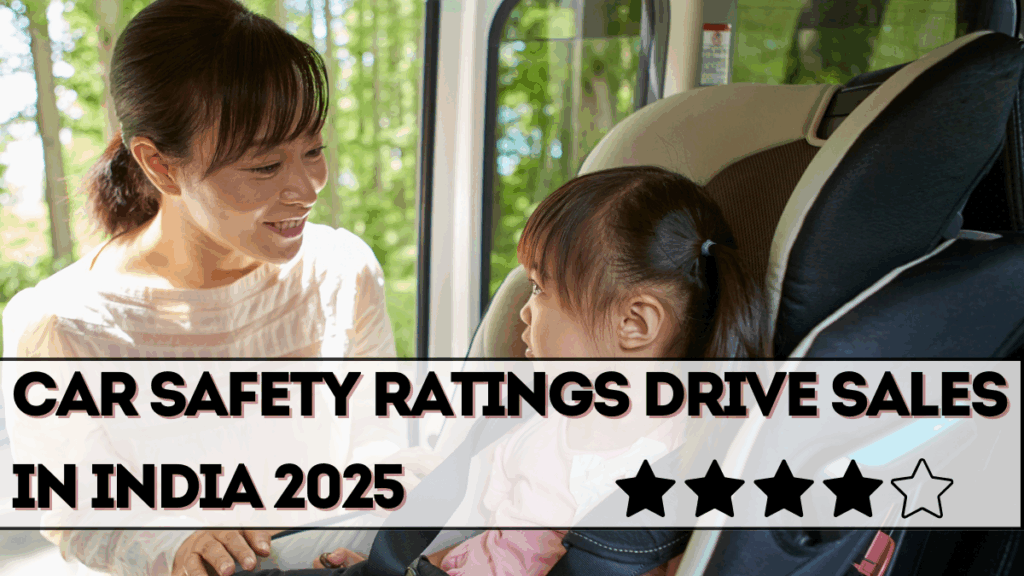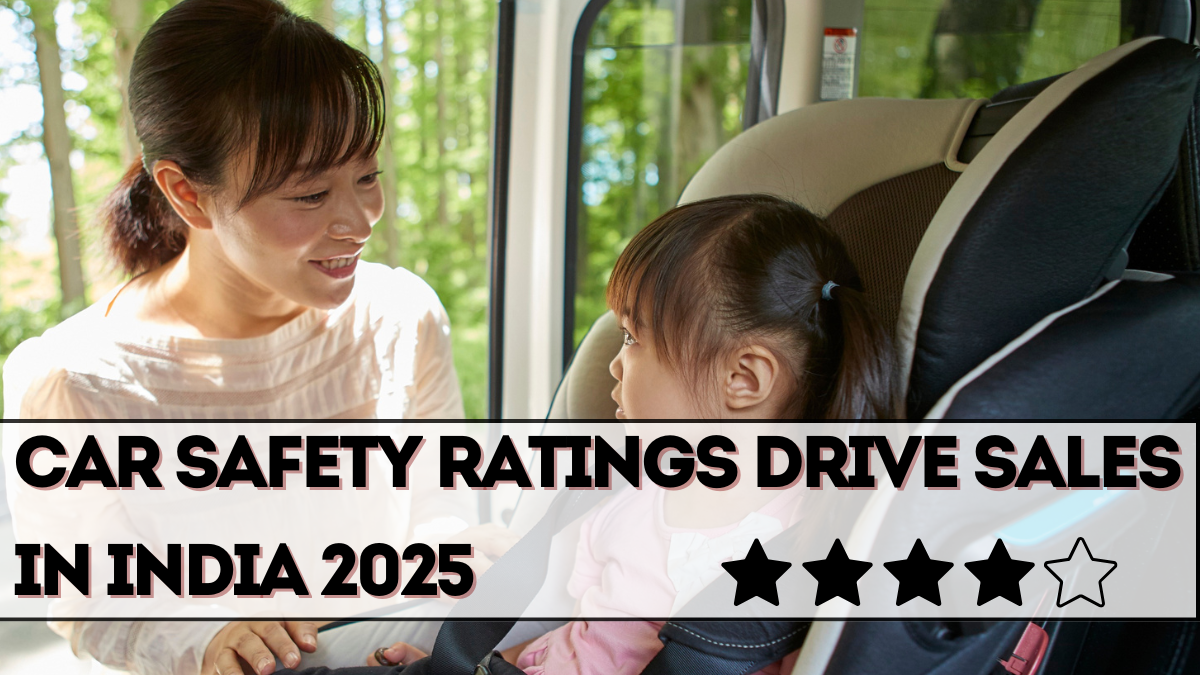In September 2025, car safety has become a top priority for Indian buyers. More than ever before, 5-star Bharat NCAP ratings are influencing purchasing decisions across segments. From hatchbacks to SUVs, customers are demanding cars that combine style, affordability, and safety.
This change marks a significant shift in India’s automobile market, where earlier, fuel efficiency and price used to dominate decisions.

Why Safety Ratings Matter Today
Indian roads are among the most dangerous in the world.
-
Rising accidents have created a sense of urgency for safer cars.
-
Media campaigns and social media awareness have boosted buyer education.
-
Bharat NCAP’s stricter norms have forced automakers to improve build quality.
Now, a 5-star NCAP rating is seen as a badge of trust by Indian families.
Automakers Leading the Safety Race
Several companies are making safety a core selling point.
-
Tata Motors: Known for 5-star models like Nexon, Punch, and Harrier.
-
Mahindra: XUV700 and Scorpio-N are benchmarks in safety.
-
Honda and Hyundai: Adding ADAS and high-strength body structures.
-
Maruti Suzuki: Improving safety tech in the Swift, Brezza, and upcoming models.
These changes are reshaping brand perception in India.
How Buyers Are Responding
Safety ratings are no longer ignored—they are deal breakers.
-
Families prefer cars with dual airbags, ABS, and high crash ratings.
-
Young buyers seek tech-driven safety features like lane assist and ADAS.
-
Urban professionals value rear seat belt reminders and child seat anchors.
Showrooms are reporting that buyers now ask about crash test ratings before finalizing purchases.
Role of Bharat NCAP
The Bharat New Car Assessment Program (BNCAP) has been central to this change.
-
Introduced stricter norms for frontal, side, and pole impact tests.
-
Increased transparency by publishing detailed crash test results.
-
Motivated carmakers to voluntarily test their cars for higher ratings.
This has made safety a mainstream discussion in the auto industry.
SUVs and Sedans in Focus
SUVs and sedans are seeing strong buyer demand when safety is highlighted.
-
Compact SUVs like Tata Nexon and Maruti Brezza are popular for their ratings.
-
Mid-size SUVs such as Hyundai Creta and Kia Seltos are upgrading features.
-
Sedans like Honda City and Skoda Slavia are adding strong hybrid + safety bundles.
Safety ratings are now a key differentiator across all segments.
Affordability Meets Safety
Earlier, safety features were limited to premium models. That is no longer the case.
-
Entry-level hatchbacks are being designed with stronger frames.
-
Budget cars like the Tata Punch and Maruti Swift are affordable yet safe.
-
Automakers are ensuring buyers don’t have to compromise between price and safety.
This balance has made safety features accessible to middle-class households.
Analysts’ Views
Industry experts believe this focus on safety will transform the Indian market.
-
Buyers are finally aligning with global standards of car safety.
-
Automakers that ignore safety ratings risk losing sales.
-
By 2026, most popular models are expected to carry at least a 4-star rating.
This trend also helps India’s image as a global auto hub with safer cars.
Challenges for Automakers
The push for safety comes with its own challenges.
-
Higher production costs due to stronger materials and advanced tech.
-
Need for dealer training to educate buyers about new features.
-
Balancing safety with fuel efficiency and affordability.
Still, the long-term benefits outweigh the hurdles.
Final Thoughts
The rise of car safety ratings in India in 2025 reflects a mature market mindset. Buyers are no longer satisfied with low-cost cars alone—they want vehicles that protect their families.
Automakers that adapt to this trend will gain long-term loyalty, while those that ignore it risk being left behind.
For buyers, safety is no longer optional—it is the most important feature of a new car.
FAQs
Why are car safety ratings important in India now?
Because rising accidents and stricter Bharat NCAP norms have made safety a top concern.
Which automakers have the safest cars in India?
Tata, Mahindra, Honda, and Hyundai currently lead in crash test ratings.
Are small cars also becoming safer?
Yes, models like the Tata Punch and Maruti Swift now feature stronger builds and airbags.
What is Bharat NCAP?
It is India’s official crash test program that rates cars from 1 to 5 stars based on safety.
Will safety increase car prices?
Slightly, but tax reforms and mass production efficiencies are keeping prices affordable.
Click here to know more.
